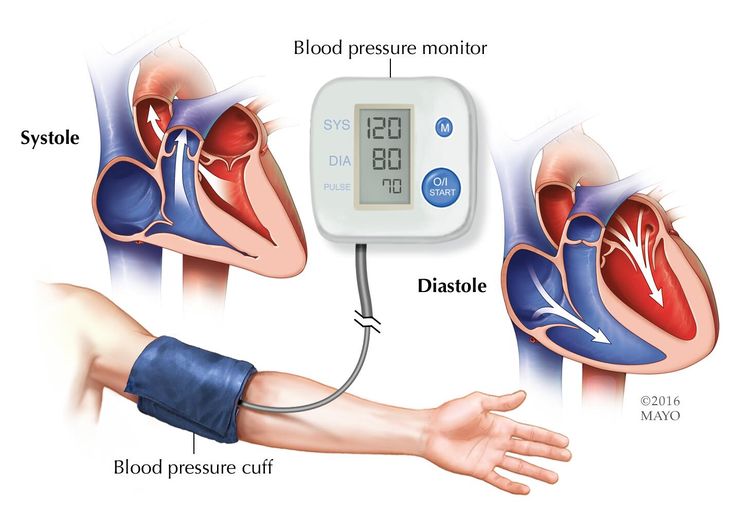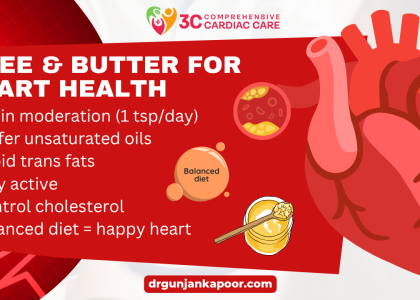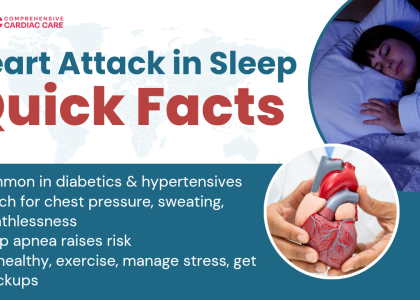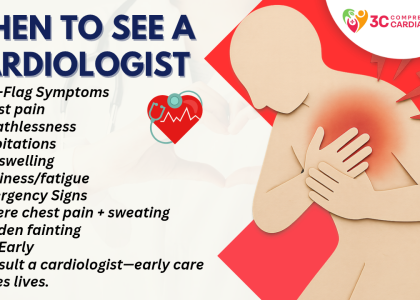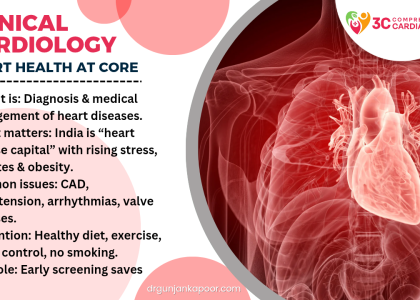⚠️ “He Ignored His Blood Pressure for Years. Then One Morning…”
A True Story About Silent Danger — and a Second Chance at Life ⏳⚕️
A Normal Morning That Changed Everything
Vikram, 52, a hardworking banker and father of two, woke up early to get ready for work. He felt a slight pain in his neck, some pressure in his chest, and a wave of dizziness.
He shrugged it off. “Probably just slept wrong,” he muttered.
An hour later, he collapsed in his kitchen. His wife found him unconscious, his skin cold, pulse weak.
The Diagnosis: Hypertensive Emergency
In the ER, his blood pressure read 220/120 mmHg.
The diagnosis?
➡️ Hypertensive Crisis with Acute Heart Failure.
Doctors rushed to stabilize him. His heart had been under pressure for years. Quietly. Constantly.
He had never checked his BP regularly.
He thought he was “fine.” He was not.
What Vikram Ignored for Too Long
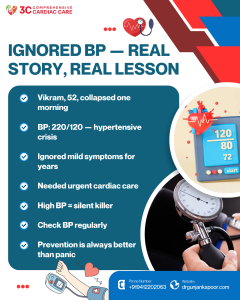
Occasional headaches
Poor sleep
Shortness of breath while climbing stairs
Irritability and mood swings
Racing heart when stressed
He always said: “It’s just stress. I’m managing.”
He Ignored His Blood Pressure
High BP: The Silent Killer
Hypertension is called “silent” for a reason:
No symptoms for years
Slowly damages heart, kidneys, brain, and eyes
Increases risk of stroke, heart attack, kidney failure
In India, 1 in 3 adults has high BP, but only half are diagnosed. Even fewer manage it consistently.
❤️ What Saved Vikram
He was lucky.
The emergency team stabilized him.
He now lives with a stent and daily medications.
He checks his BP twice a week. Walks every morning. Eats mindfully. Talks to his doctor regularly.
But not everyone gets that second chance.
Early monitoring = fewer emergencies.
The Lesson: Don’t Wait for a Collapse
If you’re over 35, or if your parents had BP/diabetes/heart issues — get your blood pressure checked every 6 months.
Even if you feel “fine.”
Especially then.
Regular health checks
Low-salt diet
♂️ Exercise
Rest
Manage stress — and meds if prescribed
⚕️ Dr. Kapoor’s Final Word
We often fear diseases that shout — like cancer or heart attacks.
But the ones that whisper quietly, like high blood pressure, are just as deadly.
Listen now, or your body may scream later.
Don’t ignore the quiet warnings. Book your checkup.

